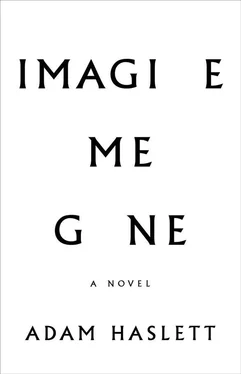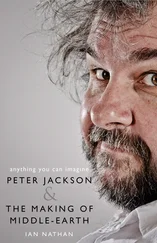She’s an unlikely librarian, her flair wasted, if not resented, by everyone but the high school boys and their fathers. Early on, she decided that I was to be her ally against the forces of boredom and small-mindedness. I was too tired to resist. She was one of the first new friends I made after John died, she and my neighbor Dorothy, and I’m still thankful for them both. Suzanne and I are by now the two stalwarts of the Walcott town library, the aging single lady and the widow.
She is always quick to note the disproportionate enthusiasm of the male trustees for our younger female coworkers, and about that she has a point. It’s not what men say or do to you. It’s what they say and do for other women, and not you. The little questions and compliments, the daily recognitions. It took me a while to understand the subtlety of it, the way invisibility works at my age. I suppose it shouldn’t have surprised me that couples who’d known John and me together didn’t call as often after he died, but it did. I thought it was owing to the manner of his death at first, the awkwardness of the subject, but really they were just more comfortable with other married pairs.
The job’s been good for me that way — meeting new people for whom I’m simply a colleague, nothing more complicated than that.
“Come to Kanty’s with me,” she says. “You never come.”
It’s the restaurant where she entertains the bartender on Friday evenings, and drinks more wine than she should before driving home. Luckily, I’ve never had a taste for alcohol in any quantity, or else I might have been tempted by it.
I tell her I’m waiting to be picked up. “Celia and Alec came back early this year — for my birthday.”
She turns, stomps her high heel in mock indignation, then lights into me for giving her no notice. “I would have had a cake and a card! What is it with you? You’re getting a cake on Monday, be sure of it.”
“Don’t be silly,” I say, recognizing my car as it enters the parking lot.
“No,” she says. “It’s no use protesting. You will be feted whether you like it or not.”
It’s Celia who’s come. I’d expected one of the boys. She flew in only this afternoon. As soon as I close the door and wave good-bye to Suzanne, Celia puts the car back in gear and we’re off, no chance for a quick half-hug over the emergency brake now that she’s got her eyes on the road.
“Sorry if I’m late,” she says. “Michael didn’t remember what time we were supposed to get you.”
“Oh, don’t worry. How was the flight? Is Paul with Michael at the house?”
“No. He’ll be here in a few days.”
“I thought the two of you were flying together.”
“Well, it turns out we didn’t.”
I’m not supposed to ask about these things. I never was.
She looks older than a year ago, more serious still. She’s cut her hair short, and as usual wears no jewelry or makeup. Not that I do myself much, or ever encouraged her to, but the lack of it is somehow more severe on her. I sometimes wonder if she’s trying to avoid the attention she gets from men. But if I said such a thing she would roll her eyes and sigh. They all sigh, my children. It’s their most frequent response to me.
She asks me how work was. I tell her I’m just glad to be finished through the holiday. “I wish you could stay for longer,” I say.
“I told you, it was hard to find someone to cover me even for this long.”
These people she sees have such problems that I worry about her, that all their woe comes to rest on her shoulders. But she gets impatient with me if I mention it over the phone. She could have done any number of other things, but I’ve never pretended to give her professional advice. Not like her father would have. And she’s never asked for it.
In spring and fall these back roads to the house are full of color and light, but at this time of year the ground is muddy or snow-covered, and shrouded now in the early dark. In January, it will be twelve years that I’ve been doing this drive. It’s where I cried in the beginning — in the car. I suppose because I knew the crying could last only so long, that I’d be arriving home soon and would have to account for myself to Alec and Celia. That was back when I was forgetting everything — keys, bills, what to get at the grocery store. And much of what happened too, apparently, because those years are still a blur to me.
Everyone said not to make any big decisions right away. Continuity, that’s what the children needed. You might regret a rash move. Which I understood. But there was the mortgage, and the town taxes, and the credit card bills we’d run up during his illness. That Walcott would hire me twenty years after I’d last worked in a library was a miracle. Still, we’d bought the house on John’s salary, not mine. My mother had left my sister and me a small bequest, and Penny helped out now and then. But I was often at the end of my tether, not sure if I had enough in the bank to write another check. And Celia was a good organizer, she always has been. She’d sort through bills and call the credit card people if I’d fallen behind, arranging for smaller payments. She seemed to take to it naturally, without my asking her. But it was lousy of me, I’m sure, relying on her like that. I know now that she resented it, having to take care of me when we were all still reeling. I know that isn’t why she went to California, but she is the only one of them who’s gone so far.
“You saw Michael, then,” I say. “How did he seem to you?”
“I didn’t know he had a beard.”
“Yes. I’m not sure it suits him.”
“He seemed okay. Not worse.”
“Still no word from Bethany.”
“Yeah, I’m aware of that.”
“It’s such a pity about Caleigh.”
“Mom, she’s a lesbian. And that was years ago.”
“I’m just saying. They still like each other so much.”
I think everyone’s a bit bisexual and it seems a pity to be strict about it if people get along. But I’m sure that’s naive. They’re all very sophisticated, my children, and quick to point out when I’m not.
“Did you see Mercury last night?” I ask. “It was such a clear sky here, and it was so bright. It’s closer to Earth than it’s been in thirty years, we should go out and look later, you probably don’t see it as well from the city. We’re supposed to get snow this evening but then it’s supposed to clear up. I was hoping we’d get out to the Allens on the twenty-seventh, they’ve invited all of us, and I know they’d like to see you. Drew’s back — I told you he’s engaged, didn’t I? They met in Peru on some kind of hiking expedition. Samantha’s her name. It’s all quite sudden, I think, but in any case, she’ll be there, too. You’d like to come, wouldn’t you?”
“Come where?”
“To the Allens’.”
“Maybe. I’ll have to see.”
Whenever she and Alec come home, no sooner do they get in the house than they’re on the phone making plans to be elsewhere, with friends. It’s been like that for years. There’s no use complaining, but then, they’re here so infrequently.
“Well, I know they’d like to see you.”
“What day is that? Our appointment is on Tuesday.”
“You didn’t tell me that.”
“I told you I was going to make an appointment, and that’s when he could do it.”
“Well, I’d have liked to have known.”
She accelerates into the turn onto Garnet, tilting me toward the door.
“I didn’t think we had a big schedule,” she says.
It’s Celia’s idea — her professional estimation, I suppose — that the four of us should go and speak to someone together. I don’t have a huge amount to say, but if it helps the three of them, I have no objection. I will go along and receive my criticism. It’s just a shame it has to be straight after Christmas.
Читать дальше












